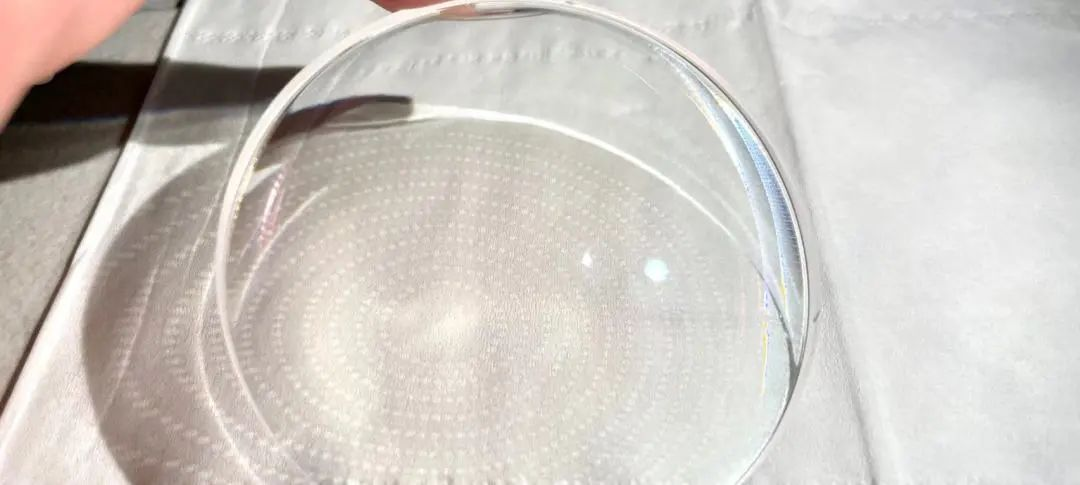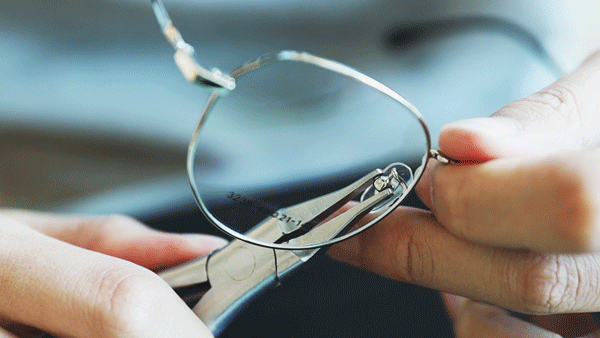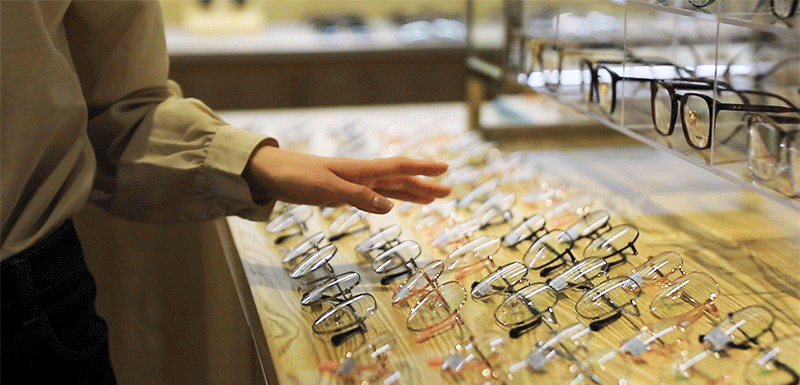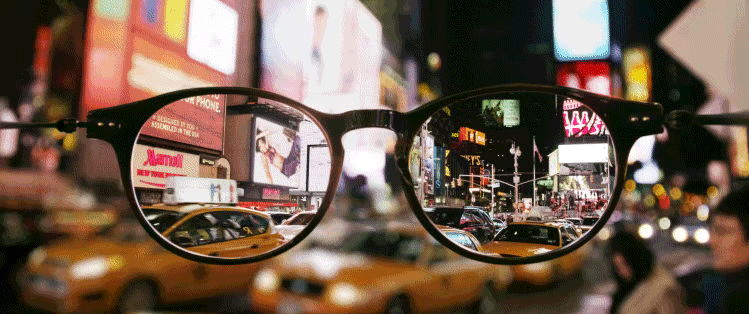Most things have a period of use or shelf life, and so do glasses. In fact, compared to other things, glasses are more of a consumable item.
A survey found that most people use glasses with resin lenses. Among them, 35.9% of people change their glasses approximately every two years, 29.2% of people change their glasses every three years or longer, and 36.4% of people only replace their glasses when they are worn out.
The product shelf life of glasses Glasses are personalized and tailored according to various parameters of the eyes (such as diopters, binocular vision function, degree of visual correction, etc.) after precise scientific optometry, and are customized through the combination of lenses and frames . However, they are not permanently stable. With the passage of time, the light transmittance, diopters of the lenses, and the interpupillary distance, pantoscopic tilt, and surface curvature of the frames are all changing.
After the expiration of the glasses' service life, not only are they uncomfortable to wear and affect visual effects, but they also directly affect the consumer's visual health.
Frame shelf life
| Frame type | Shelf life (months) | Determining factors |
| Plastic | 12-18 |
7. Nursing and storage ability |
| Acetate | 12-18 | Determined by the nature of the material, thermal expansion and contraction can easily cause deformation and affect vision health. |
| Plastic&steel | 18-24 | Determined by the nature of the material, thermal expansion and contraction can easily cause deformation and affect vision health. |
| Metal | 18-24 | The electroplating is corroded by sweat and deformed due to improper storage and care, which affects the health of vision. |
| Bamboo | 12-18 | Deformation when exposed to water and improper storage and care may affect vision health. |
| otherMaterial | 12-24 | Determined by material properties and storage and care factors. |
Lens shelf life
| Material | Shelf life(months) | Determining factors |
| Resin | 12-18 | Lens material properties |
| MR | 12-18 | Living and working environment |
| Glass | 24-36 | Custody care ability |
| PC | 6-12 | Lens scratch resistance |
| Polarized and other functional lenses | 12-18 | climatic factors |
Factors Affecting the Service Life of Glasses
The optimal service life of a pair of glasses is 12 to 18 months. Two important factors that affect the service life of lenses are light transmittance and prescription.

Light Transmittance
Let's first look at some data: the light transmittance of brand new lenses is generally 98%; after one year, the transmittance is 93%; after two years, it's 88%. The light transmittance of lenses gradually decreases with the increase in usage time. Glasses are used very frequently, requiring regular cleaning. Outdoor dust can also wear down the lenses, and accidental scratches or abrasions during use can lead to a deterioration in the optical performance of the lenses. Additionally, resin lenses have the ability to absorb ultraviolet light, but as a result, they may yellow with age, affecting the optical transmittance of the lenses.

Optometric Prescription
The optometric prescription changes every year. With differences in age, visual environment, and severity, the refractive state of the eyes also changes. The prescription of glasses may not meet the changes in the refractive state of the eyes, so it's necessary to have a new optometric examination every 12 to 18 months. It's worth mentioning that in European and American countries, the validity period of an optometric prescription is 18 months.
For people with myopia, if the use of lenses exceeds the "shelf life," it may easily cause eye fatigue and accelerate the progression of myopia due to the aging of the lenses and changes in the refractive state of the eyes. In daily life, we should regularly maintain and check our lenses to protect our glasses and, at the same time, protect our eyes.

Glasses Warranty Expiration Features
If any of the following situations occurs, you need to replace your glasses in time.
1 The lens is severely worn
Some people are careless and tend to place their glasses around, or accidentally scratch their lenses while exercising. Long-term use of glasses with severely worn lenses can lead to blurred vision and damage vision health.
2 Glasses are severely deformed
Teenagers are lively and active, and their glasses are often bumped or stepped on without paying attention, causing the frames to deform. Sometimes the glasses even fall under the nose, and the children continue to wear them after adjusting them casually. Parents must check their children's glasses every day to see if there is any deformation problem. Pay special attention to the fact that the optical center of the lens must be aligned with the pupil center of the eye. If misaligned, it will cause visual fatigue, strabismus, and increased visual acuity.
3. The prescription of glasses does not match.
When most children cannot see clearly through their glasses, they will not tell their parents immediately. Instead, they will squint or push up their glasses to see, making it difficult for parents to notice immediately. Faced with a child's sudden increase in myopia and poor adaptability, it is often found that it is too late to correct the problem and can only increase the prescription of glasses.
Children who wear glasses need to go to a regular glasses fitting institution or hospital to have their vision checked regularly (three months to six months). You must develop a good habit of checking your vision. Although some children can see 1.0 with both eyes, it is possible that one eye can reach 1.0 but the other eye cannot. It is difficult to detect without careful inspection.
Once you wear glasses, especially for children, you must pay attention to the use of the glasses. Don't wait until the glasses are so damaged that they can no longer be used before replacing them with new ones. The health of your child's vision is the most important.

How to Care for Glasses
1. Do not place glasses with the mirror facing down.
Place glasses with the mirror side down. If you accidentally move the glasses to the frame, the lenses are likely to be scratched. Placing glasses with the lenses facing down is very easy to scratch the lenses, which is not worth the loss.
2. Do not expose your glasses to high temperatures
Today's lenses are all coated resin lenses. Coated lenses can effectively block ultraviolet rays and increase light transmittance. The film layer of the lens is coated on the surface of the lens. Because the expansion coefficient of the film layer and the base material are different, the film layer is very easy to crack due to the influence of high temperature, interfering with the light entering the eyeball, causing very serious glare.
Tips: Glasses must not be left in the car in the summer, nor can they be taken in to take a shower or sauna. You should avoid being too close to an open flame when cooking or barbecue. High temperature will cause all the film on the surface of the lens to crack and become scrapped.
3. Try not to wipe lenses with glasses cloth
In daily wearing of glasses, the surface of the lens often absorbs a lot of dust (not visible to the naked eye). If you directly wipe the lens with a lens cloth at this time, it is equivalent to using sandpaper to grind the lens, and some people are used to using the lens cloth in circles. Wiping the lenses, these are all wrong.
If you do not have the conditions to clean your glasses temporarily, you must wipe the lenses with a lens cloth. It is recommended that you wipe the lenses gently in one direction and do not wipe the lenses back and forth or in circles. Static electricity will cause a lot of dust to be absorbed on the surface of the lens, so dry wiping with a lens cloth should be avoided as much as possible.
4. No contact with chemicals
Do not use Amway cleaning fluid, shampoo, soap, washing powder, or surface dirt cleaner to clean glasses (lenses), as this can easily cause the lens film to peel off and peel off.
You can clean your glasses by yourself every day when you go home. Just use cold water and neutral dish soap. Apply the dish soap to both sides of the lens, then apply it evenly in circles with your fingers, and rinse with tap water until there is no greasy feeling.
After cleaning, there will be some small water droplets on the surface of the lens. Use a dry paper towel to absorb the water droplets (be sure not to rub the lens).
In Conclusion
Glasses are high-precision and easily perishable items, and wearing glasses for myopia correction is a common choice. Protecting glasses means protecting our eyes. We have provided professional guidance on the maintenance and care of glasses, but more importantly, we want to tell everyone that glasses are not luxury items or durable goods; they are consumables in our lives. If you are reading this and find that your glasses are no longer under warranty, please remember to replace them in a timely manner.

Post time: Jan-29-2024


